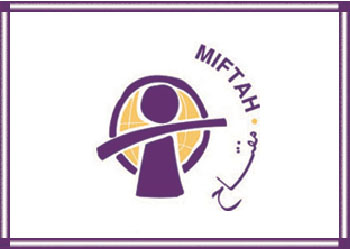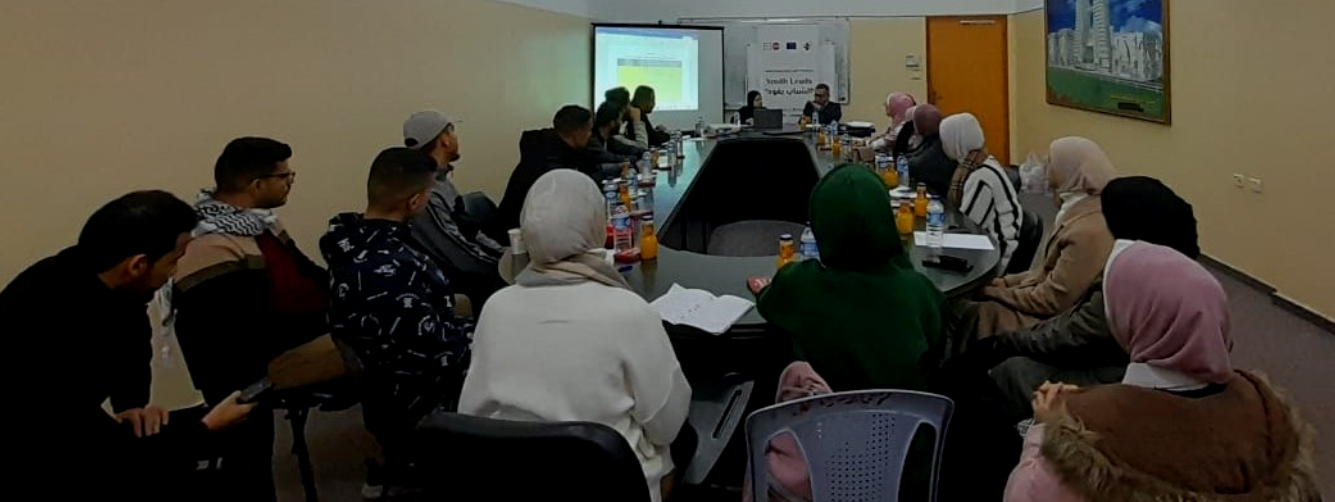
Ramallah – 26/9/2019 – Throughout September, MIFTAH broadcasted three radio talk shows in support of “WIFAQ” – the Women’s Shadow Committee to the formal reconciliation committees—in order to increase women’s representation at the national dialogue table and press for a solution to the outstanding issues in reconciliation efforts: public freedoms, social reconciliation and the PLO. The talk shows focused on WIFAQ’s position on the aforementioned files and on the Analytical Report on Violations Against the Palestinian Women and Girls in Gaza Strip During the National Division -at the security and social levels.. This is all part of MIFTAH’s efforts to promote women’s participation in decision-making and policy formulation.
The talk shows hosted several WIFAQ members in the Gaza Strip who shed light on the repercussions of the division on women over the past 10 years and the most significant violations committed against them. They said the transgressions against social rights because of the division extended to the individual and familial levels for women to include environmental and social rights in general.
The committee members explained that women have not been able to overcome the negative impacts of the security violations even though they have tried to employ strategies to minimize them. They asked why women and youth have been excluded from political decision-making positions and from progressing within Palestinian factions.
The shows hosted a number of leaders and figures active in the national reconciliation files, including Khalil Assaf, Hani Masri, Mustapha Barghouthi, and Mariam Abu Daqqa to discuss the challenges facing both male and female youths at the national dialogue table. The guests also emphasized the importance of youth advancing to the front lines of political participation.
The four radio talk shows were viewed 4,300 times in total, to which radio show presenter Adham Manasra commented, “The extent of interaction with issues that affect people’s everyday lives is usually more than with political issues. The number of people who watched the four talk shows was considerable and reflects the level of interest in the proposed issues. The Gaza Strip was the most interactive in discussions on reconciliation and elections in comparison with the West Bank. This is because of the exclusivity of the Gaza Strip in terms of the impact of the division and as a result of the complicated humanitarian conditions there.”
Manasra continued, “Responsibility for the decline of people’s interest in the reconciliation falls on decision-makers who have caused them to lose hope in the possibility of ending the division; there have been many failed attempts and a lack of good intentions and seriousness in this regard. This sense of frustration among the people has had grave ramifications on ‘citizenship”, our internal relationships and the fate of our national cause. This should prompt observers and decision-makers to look carefully at the reasons for this decline in popular interest in reconciliation and elections and at ways to regain their confidence in the possibility that this could be achieved before it is too late.”
MIFTAH’s Gaza Strip coordinator Shadia Ghoul said the talk shows ”contributed to bringing back the topic of reconciliation in general and women’s participation in particular.” She said “there was a sense of frustration and hopelessness regarding the reconciliation after failure to achieve it for 13 years, because of the many unimplemented agreements that are similar in content but differ in form. The shows have given women and WIFAQ members a platform to allow their voices to reach decision makers.”
Ghoul continued, “This platform showcased to listeners a number of violations to health issues that residents of the West Bank may not know due to the differences in the division’s impact on them. It also offered a comprehensive presentation from the political, economic and social aspects. This is an opportunity to transform this suffering into a tool of strength and of social and political change.”
The talk shows are part of MIFTAH’s interventions in its “Conflict and Fragility” project, funded by OXFAM.
Please find the links to the radio shows below:








